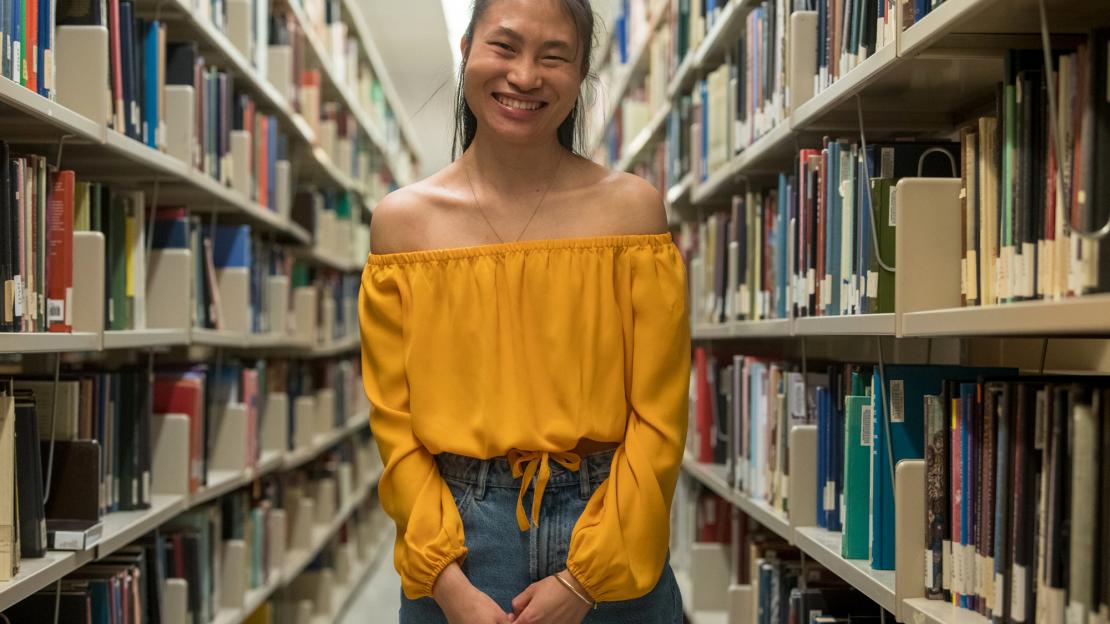Grayson Chong didn’t grow up surrounded by Jamaican literature. But because her family is from the island, she wanted to find ways to blend her background with her love of English literature –– specifically, her love of Shakespeare.
It wasn’t until she took the Colonial and Postcolonial Literature course at U of T Scarborough that she started to combine the two.
“We studied Caribbean poets that I wasn’t exposed to,” says Chong, a fourth-year English student at U of T Scarborough. “I was studying a lot of Shakespeare at the time and I started to think, ‘How can I mix my love for Shakespeare in the context of the Caribbean?’”
With the help of the Academic Travel Fund, Chong recently flew to Santa Barbara, Calif., where she presented her research at the Early Modern Conference at the University of California. The annual conference allows scholars to share their work on the modern periods from 1500 to 1800 CE.
Chong’s paper, Worlds of Plantations: Early Modern Economic Maps of the Caribbean, analyzes Shakespeare’s The Tempest and dissects Gonzalo’s monologue on plantations. The scene brings to light the question of labour. From this, Chong proposes how Gonzalo’s fantasy is seen through history, specifically England’s exploration of the New World.
“I think about how maps visualize the production of the landscape itself, because most of the ideas of the time were discovering or exploring new territory,” Chong explains. She then analyzes how populations were represented, and how they “contributed to the idea of conversion and exploration for England.”
The travel fund allowed her to explore a new city she hadn’t considered visiting before. With a quick visit to the Huntington Library in L.A., Chong was also able to find resources for her research outside of those she had back home.
“I had personally used the work of some of the scholars at the conference. I was quite star-struck meeting them,” she says. “That was the biggest moment for me.”
Applying to the Academic Travel Fund also gave her a taste of presenting work on an international stage.
“As a scholar, it’s something we do all the time and I always say that the Travel Fund is a good way to practice what the lifestyle of a future scholar would be,” she says. “I take it as a way for me to professionalize myself and I think that’s valuable.”
